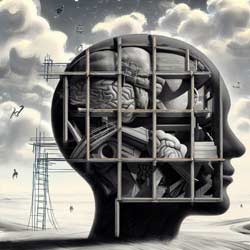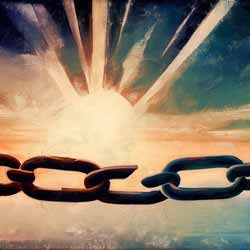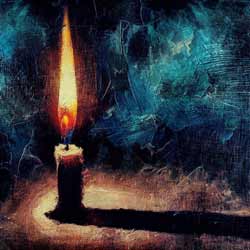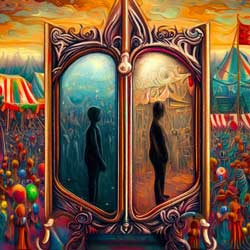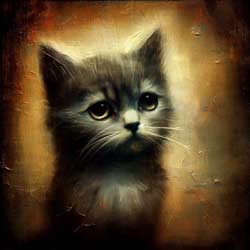
In the grand tapestry of life, "An Ode to a Kitten's Tale" weaves a narrative as tender as it is profound. It sings the song of a diminutive kitten, a creature of innocence and resilience, grappling with the enormity of a world that seems too large, too harsh. Yet, in the heart of despair, a guardian angel descends, silent and unseen, altering the course of this small life. A benevolent soul steps forth from the shadows, cradling the kitten into a world where love is the language spoken, where kindness is the air breathed. This narrative is not merely an ode to a kitten, but a hymn to humanity itself, a call to awaken the dormant kindness within us and extend our hands to those who stand alone. It is a testament to the transformative alchemy of compassion and a reminder of our shared heartbeat with every creature that walks, flies, or crawls upon this Earth.

 Honesty is a virtue we invoke often but seldom practice rigorously, and rarely without cost. It is the antidote to the corruptions that surround us—the small deceptions we tell ourselves, the larger ones we tell each other, the systems built upon deliberate falsehood. To speak truth, to live it, requires a kind of courage that goes unsung.
Honesty is a virtue we invoke often but seldom practice rigorously, and rarely without cost. It is the antidote to the corruptions that surround us—the small deceptions we tell ourselves, the larger ones we tell each other, the systems built upon deliberate falsehood. To speak truth, to live it, requires a kind of courage that goes unsung. In every culture, there comes a moment when the living must pause and give words to the silence left behind by the dead. Tradition compels us to remember, even when memory is bitter, and to mark a passing with the dignity of ceremony. An elegy, in its most familiar form, is a lament: a ritual of speech that acknowledges loss, frames a life, and offers shape to the void a death leaves in its wake.
In every culture, there comes a moment when the living must pause and give words to the silence left behind by the dead. Tradition compels us to remember, even when memory is bitter, and to mark a passing with the dignity of ceremony. An elegy, in its most familiar form, is a lament: a ritual of speech that acknowledges loss, frames a life, and offers shape to the void a death leaves in its wake.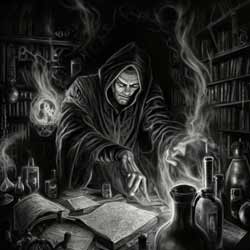 Embark on a journey through the mysterious and shadowed realms of an alchemist's mind in this haunting poetic tale. The poem unravels the story of a seeker of forbidden knowledge, driven by the thirst for power and the secrets of arcane arts. As the protagonist delves deeper into eldritch secrets, a malevolent force ensnares them, leading to a chilling descent into madness. Witness the tragic consequences of delving into ancient mysteries, revealing the dangers that lie beyond the veil of our reality.
Embark on a journey through the mysterious and shadowed realms of an alchemist's mind in this haunting poetic tale. The poem unravels the story of a seeker of forbidden knowledge, driven by the thirst for power and the secrets of arcane arts. As the protagonist delves deeper into eldritch secrets, a malevolent force ensnares them, leading to a chilling descent into madness. Witness the tragic consequences of delving into ancient mysteries, revealing the dangers that lie beyond the veil of our reality.